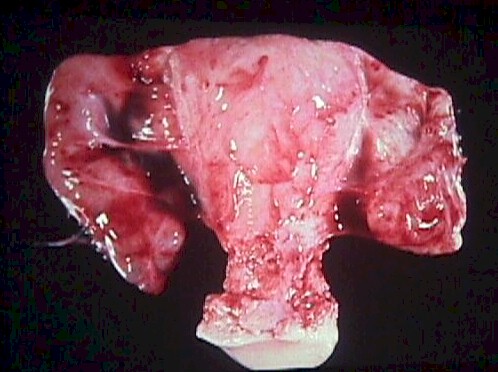PID (Pelvic Inflammatory Disease)
Infertility is usually a lot to deal with especially if you are married to an African man. A typical African family strongly believes that the major purpose of marriage is to bear children that will carry on the family legacy. If the woman is unable to conceive after a few months, her fertility status will be questioned and if in about a year or two, the story is still the same, she incurs the wrath of the family members, in most cases, the man’s mother. Infertility can occur due to various reasons and untreated PID (pelvic inflammatory disease) has been one of the major causes of infertility in women over the years.
What is pelvic inflammatory disease?
Pelvic inflammatory disease (PID) is a bacterial infection of the reproductive organs, including the uterus, fallopian tubes, and ovaries. It’s usually caused by sexually transmitted infections (STIs), like chlamydia or gonorrhea. However, it can also be caused by other bacteria, like E. coli. Pelvic inflammatory disease is almost always a condition that affects only women. However, there have been rare cases in which men have developed similar symptoms. It’s important to note that PID is not the same as a sexually transmitted infection (STI). STIs can lead to PID, but they are not the same condition.
Click here to order fekomi terminator for STIs and UTI
What causes pelvic inflammatory disease?
PID is caused by bacteria. The most common bacteria that cause PID are chlamydia and gonorrhea. These bacteria can spread from the vagina to the uterus, fallopian tubes, and ovaries. PID can also be caused by other bacteria, like E. coli. Symptoms of PID can vary from person to person, but they often include pelvic pain, fever, and abnormal vaginal discharge. Without treatment, PID can lead to serious complications, like infertility.

How is PID diagnosed?
Diagnosing PID often starts with a pelvic exam. The doctor will check for signs of infection, like redness, swelling, or discharge. They may also do a test to check for STIs. If PID is suspected, they may order a blood test or a test of the discharge to confirm the diagnosis.
Symptoms of PID
There are a number of symptoms that may indicate a person has PID.
One of the most common symptoms. These include:
- Pelvic pain (this can be a dull, aching pain that lasts for weeks or months).
- Abnormal vaginal discharge
- pain during sex
- painful urination
- Fever
- bleeding between periods
Some people may have no symptoms at all, which is why regular STI testing is so important.
When to see a doctor
It’s important to see a doctor if you have any symptoms that could be caused by PID. You should also see a doctor if you think you may have been exposed to an STI. Some people with PID have no symptoms at all, but it’s still important to get checked out if you’re sexually active. The sooner PID is diagnosed and treated, the better the outcome will be.
Risk factors
There are several risk factors that can increase the chance of developing PID. One of the biggest risk factors is having an STI, like chlamydia or gonorrhea. Other risk factors include having multiple sex partners, having a new sex partner, and using douches or other products that can irritate the vagina. Having had pelvic inflammatory disease in the past can also increase the risk of developing it again. Additionally, younger women are at a higher risk than older women.
Another risk factor for PID is using an intrauterine device (IUD). IUDs are a type of birth control that is inserted into the uterus. While IUDs are generally safe, there is a small risk of developing PID after insertion. The risk is higher in the first few weeks after insertion and decreases over time. IUDs that release hormones have a lower risk of PID than copper IUDs.
Note: know that even if you have a risk factor for PID, it doesn’t mean that you’ll definitely develop it. There are many people with risk factors who never get pelvic inflammatory disease
Can UTI cause PID?
While a urinary tract infection (UTI) is not the same as pelvic inflammatory disease (PID), a UTI can increase the risk of developing pelvic inflammatory disease. This is because bacteria that cause a UTI can travel from the urethra to the uterus, fallopian tubes, and ovaries. The bacteria can then cause an infection in these organs, which is known as pelvic inflammatory disease. In addition, having a history of recurrent UTIs can also increase the risk of developing PID.
Complications of PID
One of the most serious complications of pelvic inflammatory disease is infertility. This is because the infection can cause scarring and damage to the fallopian tubes, making it difficult for an egg to travel from the ovaries to the uterus.
Pelvic inflammatory disease can also cause an ectopic pregnancy, which is when a fertilized egg implants outside of the uterus, often in the fallopian tubes. This is a very serious condition that can be life-threatening if not treated immediately.
PID can cause chronic pelvic pain, which is pain that lasts for more than six months. It can also lead to an abscess, which is a collection of pus. This can be treated with antibiotics or surgery.
Pelvic inflammatory disease can increase the risk of contracting HIV, if you are exposed to the virus.
How to prevent pelvic inflammatory disease
In order to prevent the infection from spreading, you may need to abstain from sex for a while. The best way to prevent PID is to prevent STIs. This means using protection, like condoms, during sex. You can also lower your risk of STIs by getting tested regularly. It’s also important to inform your sexual partners so that they can get tested and treated.
Click here to order fekomi reusable condom
Treatment for PID
Treatment for PID usually involves antibiotics. The type of antibiotic will depend on the type of bacteria causing the infection. Your doctor will likely prescribe antibiotics to treat the infection. Always ensure to take all of the medication as prescribed, even if you start to feel better. If left untreated, pelvic inflammatory disease can cause permanent damage to the reproductive organs.
Your Wellness Is Our Concern At Fekomi Wellness
Our team of highly qualified and certified healthcare consultants at Fekomi wellness are always ready and happy to help you with your health concerns. Visit Fekomi wellness today to book an appointment and get started on your health journey. Kindly call our desk line on +2349074197154 for more enquiries.
